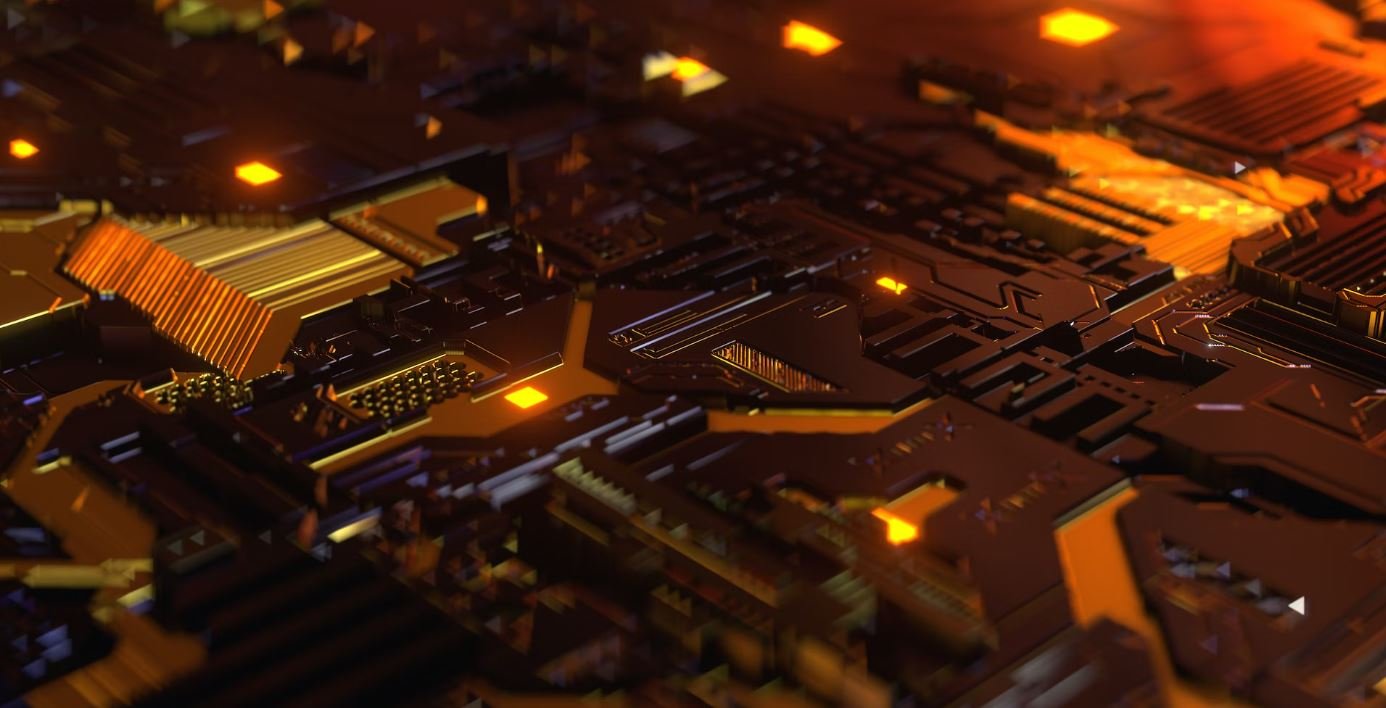AI Applications Today
Artificial Intelligence (AI) has become a prominent technology in various fields, revolutionizing the way we interact with machines and the world around us. With the advancements in machine learning and deep learning algorithms, AI applications have diversified and are now prevalent in our everyday lives. From virtual assistants to autonomous vehicles, AI is reshaping industries and offering unimaginable possibilities.
Key Takeaways
- AI applications have become widespread across industries.
- Machine learning and deep learning algorithms are driving AI advancements.
- Virtual assistants, autonomous vehicles, and healthcare are some major areas benefitting from AI.
- AI is revolutionizing industries and offering countless possibilities.
The Impact of AI in Today’s World
**AI technology** is transforming the way we live, work, and interact. From voice assistants like **Amazon’s Alexa** simplifying our daily tasks to self-driving cars offering a glimpse into the future, the impact of AI is expanding rapidly. With **smart homes**, AI can control various household devices, making them more efficient and convenient. Additionally, AI algorithms can analyze and make sense of vast amounts of **data** in fields such as finance, marketing, and healthcare, enabling better decision-making and planning.
AI is also being extensively utilized in the **healthcare industry**, where it assists in diagnosing diseases and predicting outcomes. Machine learning models can analyze thousands of medical records, identify patterns, and suggest treatment options or flag potential risks. AI-powered robots are used in surgeries, providing precision and reducing human error. **Robotic prosthetics** controlled by AI algorithms have improved the quality of life for many individuals.
AI Applications in Different Fields
1. Virtual Assistants
Virtual assistants, such as **Apple’s Siri** and **Google Assistant**, have become commonplace in our smartphones, smart speakers, and other devices. They use natural language processing and machine learning techniques to understand and respond to user queries. These virtual helpers can provide information, perform tasks, set reminders, and even engage in casual conversations, simulating human-like interactions.
2. Autonomous Vehicles
**Self-driving cars** are one of the most exciting AI applications. With complex algorithms and sensor technologies, autonomous vehicles can navigate roads, detect and interpret traffic signs, and make decisions in real-time. They have the potential to improve road safety, reduce congestion, and enhance transportation accessibility.
3. Finance
AI is revolutionizing the **finance industry** with applications like fraud detection, algorithmic trading, and personalized recommendations. Machine learning algorithms can analyze large volumes of financial data in real-time, identifying suspicious patterns that human analysts may have overlooked. AI-powered chatbots assist customers with banking tasks, providing quick and personalized solutions.
Data Points
| AI Market Value (2020) | Major AI Companies |
|---|---|
| $62.35 billion | Google, Amazon, Microsoft |
| AI Healthcare Applications | Benefits |
|---|---|
| Cancer diagnosis and treatment | Improved accuracy and personalized care |
| Mental health analysis | Early detection and intervention |
| Autonomous Vehicle Statistics | Advantages |
|---|---|
| 85% reduction in accidents | Enhanced road safety |
| 25% increase in road capacity | Reduced traffic congestion |
The Future of AI
As AI continues to advance, it is expected to play an even greater role in transforming various industries and aspects of our lives. With the integration of AI-powered technologies, we can anticipate **smarter cities**, personalized healthcare solutions, and more efficient and sustainable transportation systems. Embracing AI allows us to unlock new opportunities and tackle challenges in innovative ways, making our lives safer and more enjoyable.
*Artificial Intelligence is revolutionizing industries and enhancing our daily lives with its versatile applications*

Common Misconceptions
Misconception 1: AI will replace humans in the workforce
One common misconception people have about AI applications today is that they will replace humans in the workforce completely. While it is true that AI is becoming more advanced and capable of performing certain tasks, it is unlikely that it will completely replace human workers in most industries.
- AI can automate certain repetitive tasks, but human creativity and problem-solving skills are still highly valuable.
- AI is not capable of empathy or human interaction, making tasks that require emotional intelligence better suited for humans.
- The implementation of AI often requires human oversight and maintenance, creating new job roles in the AI industry.
Misconception 2: AI is infallible and always provides accurate results
Another common misconception about AI is that it is infallible and always provides accurate results. While AI algorithms are designed to be highly accurate, they can still make mistakes and produce incorrect outcomes.
- Training data used for AI algorithms may contain biases or inaccuracies, which can lead to biased or erroneous results.
- AI models may struggle with complex and ambiguous tasks, leading to potential errors in decision-making.
- AI algorithms need to be continuously monitored and updated to improve accuracy and avoid potential biases.
Misconception 3: AI is only used by large companies
Many people believe that AI applications are only relevant for large companies with significant resources. However, AI technology has become more accessible and affordable in recent years, making it applicable for businesses of all sizes.
- Startups and small businesses can utilize AI to automate tasks, improve customer service, and enhance decision-making processes.
- AI tools, platforms, and frameworks are available to developers and businesses of all sizes, democratizing the use of AI technology.
- The rise of cloud computing has made it easier for companies to access AI services without the need for significant infrastructure investments.
Misconception 4: AI is all about robots and self-driving cars
When people think of AI, they often picture robots and self-driving cars. However, AI applications today go far beyond these popular examples and are widely used in various fields.
- AI is utilized in healthcare for disease diagnosis, patient monitoring, and drug discovery.
- In finance, AI algorithms are used for fraud detection, algorithmic trading, and risk analysis.
- AI is also applied in recommendation systems, virtual personal assistants, natural language processing, and computer vision.
Misconception 5: AI poses a significant threat to humanity
The portrayal of AI in popular media often creates the misconception that AI poses a significant threat to humanity. While it is essential to consider the ethical implications and potential risks of AI development, the current state of AI applications does not suggest an imminent threat to humanity.
- AI systems are developed and deployed with strict regulations and ethical guidelines in place.
- Researchers and developers prioritize safety measures and continuously work towards ensuring that AI systems are beneficial for society.
- The responsible development and use of AI can bring numerous benefits, such as improved healthcare, enhanced productivity, and better decision-making.

Uses of AI in Finance
Artificial intelligence is transforming the financial industry by streamlining processes, reducing costs, and improving customer experiences. This table highlights various applications of AI in finance.
| Application | Description |
|---|---|
| Automated Trading | AI algorithms analyze market trends and execute trades at optimal times. |
| Fraud Detection | AI systems detect patterns indicating potential fraudulent activities, alerting banks and credit card companies. |
| Customer Service Chatbots | AI-powered chatbots provide instant support to customers, handling inquiries and resolving issues. |
| Credit Scoring | AI models assess creditworthiness by analyzing vast amounts of data, enabling faster and more accurate lending decisions. |
AI in Healthcare
Artificial intelligence has revolutionized healthcare by enhancing diagnosis, improving patient care, and accelerating medical research. Here are some examples of AI applications in the healthcare sector.
| Application | Description |
|---|---|
| Medical Imaging Analysis | AI algorithms analyze medical images, assisting doctors in diagnosing diseases like cancer more accurately. |
| Robotic Surgery | AI-powered robots assist surgeons during complex surgical procedures, enhancing precision and reducing risks. |
| Drug Discovery | AI accelerates the identification of potential drugs by analyzing vast amounts of data, leading to faster development processes. |
| Virtual Health Assistants | AI-powered virtual assistants provide personalized healthcare recommendations and reminders to patients. |
AI in Transportation
The transport industry is leveraging AI to optimize operations, improve safety, and enhance the overall travel experience. This table presents some notable applications of AI in the transportation sector.
| Application | Description |
|---|---|
| Autonomous Vehicles | AI-powered self-driving cars and trucks navigate roads without human intervention, reducing accidents and traffic congestion. |
| Traffic Management | AI algorithms analyze real-time data to optimize traffic flow, minimizing delays and improving transportation efficiency. |
| Ride-Hailing Apps | AI matches drivers with passengers, optimizes routes, and estimates fares in popular ride-hailing services. |
| Smart Public Transportation | AI-based systems predict demand, optimize schedules, and improve passenger safety in public transportation networks. |
AI in E-commerce
Artificial intelligence has revolutionized the way consumers shop online, providing personalized experiences and efficient product recommendations. This table showcases how AI enhances the e-commerce industry.
| Application | Description |
|---|---|
| Product Recommendations | AI algorithms analyze user behavior and preferences to suggest relevant products, increasing sales and customer satisfaction. |
| Chat-based Shopping Assistants | AI-powered chatbots provide real-time assistance to customers, guiding them through the shopping process. |
| Fraud Prevention | AI systems detect patterns of fraudulent activity during online transactions, ensuring secure and safe shopping experiences. |
| Inventory Management | AI algorithms optimize stock levels, predicting demand and preventing overstocking or shortages. |
AI in Education
Artificial intelligence has a tremendous impact on the education sector, enhancing learning experiences and personalizing education delivery. This table explores the various applications of AI in education.
| Application | Description |
|---|---|
| Intelligent Tutoring Systems | AI-based tutors provide personalized guidance to students, adapting to individual learning styles and needs. |
| Automated Grading | AI algorithms assess and grade assignments, saving teachers time and providing students with immediate feedback. |
| Virtual Classrooms | AI-powered platforms facilitate remote learning, enabling interactive lessons and collaboration among students. |
| Adaptive Learning | AI systems adapt educational content and pace based on individual student progress, enhancing learning outcomes. |
AI in Manufacturing
Artificial intelligence has transformed the manufacturing sector, leading to increased productivity, improved safety, and enhanced efficiency. This table highlights some key applications of AI in manufacturing.
| Application | Description |
|---|---|
| Quality Control | AI systems inspect products during the manufacturing process, identifying defects and ensuring consistent quality. |
| Predictive Maintenance | AI algorithms analyze equipment data and predict maintenance needs, reducing downtime and optimizing operational efficiency. |
| Supply Chain Optimization | AI models analyze supply chain data to optimize inventory levels, streamline logistics, and minimize costs. |
| Robotics Automation | AI-powered robots automate repetitive tasks, improving efficiency and reducing the risk of human error. |
AI in Entertainment
Artificial intelligence has revolutionized the entertainment industry by enabling personalized content recommendations and enhancing user experiences. This table presents various applications of AI in entertainment.
| Application | Description |
|---|---|
| Content Recommendation | AI algorithms analyze user preferences and behaviors to suggest relevant movies, shows, or music. |
| Virtual Reality (VR) | AI enhances VR experiences by generating realistic environments, improving immersion and interactivity. |
| Music Composition | AI models compose original music or generate background scores based on given styles or emotions. |
| Personalized Advertising | AI tailors advertisements based on user preferences and demographics, optimizing marketing campaigns. |
AI in Agriculture
Artificial intelligence is transforming the agricultural sector by optimizing processes, maximizing yields, and reducing environmental impacts. This table explores the applications of AI in agriculture.
| Application | Description |
|---|---|
| Precision Farming | AI systems analyze data from sensors, drones, and satellites to optimize irrigation, fertilization, and pest control. |
| Crop Disease Detection | AI algorithms identify and classify diseases in crops, assisting farmers in taking timely preventive measures. |
| Robotic Harvesting | AI-powered robots automate crop harvesting, reducing labor costs and improving efficiency. |
| Weather Forecasting | AI models analyze historical data and current conditions to provide accurate crop-specific weather predictions. |
AI in Energy
Artificial intelligence plays a significant role in the energy sector, enabling efficient power generation, improving grid management, and promoting sustainability. This table outlines some notable applications of AI in the energy industry.
| Application | Description |
|---|---|
| Smart Grid Optimization | AI algorithms analyze energy consumption patterns and adjust power distribution, optimizing grid performance. |
| Energy Demand Forecasting | AI models predict energy demand based on historical data, facilitating planning and optimizing resource allocation. |
| Renewable Energy Management | AI systems optimize the integration and distribution of renewable energy sources, maximizing efficiency and reducing carbon footprint. |
| Energy Storage Optimization | AI algorithms optimize energy storage systems, enhancing the utilization of batteries and improving energy supply reliability. |
Artificial intelligence has witnessed widespread adoption in various industries, enabling groundbreaking advancements and improved efficiency. From finance to entertainment and agriculture to energy, AI applications continue to revolutionize how we live and work. By leveraging machine learning, predictive analytics, and other AI techniques, organizations across sectors are realizing the immense potential of AI in driving progress and addressing complex challenges. As AI technology continues to evolve, we can expect even more exciting applications and innovations that will shape the future.
Frequently Asked Questions
What are the current applications of Artificial Intelligence?
Artificial Intelligence (AI) is used in various industries and fields today. It is widely applied in healthcare, finance, manufacturing, transportation, customer service, and more. AI technologies are employed for tasks such as diagnosis and treatment in healthcare, fraud detection in finance, autonomous vehicles in transportation, and chatbots in customer service.
How does AI improve healthcare?
AI plays a crucial role in enhancing healthcare by enabling accurate and speedy diagnosis, personalized treatment plans, and efficient health monitoring. It can analyze medical images, patient data, and genetic information to identify diseases and provide insights for effective treatment. AI also aids in drug discovery, robotic surgery, and virtual nursing assistance.
What impact does AI have on the finance industry?
AI has revolutionized the finance industry by automating processes, improving fraud detection, and enhancing customer experience. It helps financial institutions to analyze large volumes of data quickly, identify patterns, and make predictions. AI-powered chatbots are also used for customer support, providing immediate responses and personalized recommendations.
How is manufacturing benefiting from AI?
Manufacturing has been greatly impacted by AI as it enables automation, optimization, and predictive maintenance. AI-powered robots improve production efficiency, quality control, and safety. Machine learning algorithms analyze manufacturing data to optimize processes, reduce downtime, and predict equipment failures. AI also fosters the development of smart factories and supply chain management.
What role does AI play in transportation?
AI is instrumental in transforming transportation with autonomous vehicles, traffic management systems, and predictive maintenance. Self-driving cars and drones rely on AI algorithms to perceive their surroundings, plan routes, and make decisions. AI-powered traffic management systems optimize traffic flow, reducing congestion and enhancing safety. Predictive maintenance using AI helps prevent breakdowns and minimize disruptions in transportation systems.
How are customer service and AI connected?
Customer service has been revolutionized through the integration of AI technologies. Chatbots and virtual assistants powered by AI offer immediate and personalized customer support. They can answer frequently asked questions, provide product recommendations, and even handle complex interactions. AI-enabled sentiment analysis helps businesses understand customer feedback and improve their services.
What are the ethical considerations of AI?
As AI continues to advance, ethical considerations surrounding privacy, security, bias, and job displacement arise. It is important to ensure fair and unbiased algorithms, protect user data, and address any potential negative impact on employment. Society needs to establish guidelines and regulations to govern the responsible development and use of AI technologies.
Can AI be used for environmental conservation?
Yes, AI is being used for various environmental conservation efforts. It is employed in analyzing satellite data to monitor deforestation, detecting illegal wildlife activities, and predicting climate changes. AI algorithms can also optimize energy consumption in buildings, improve waste management, and facilitate environmental planning and decision-making.
What are some challenges in implementing AI solutions?
Implementing AI solutions can be challenging due to several factors such as data quality, technical complexity, and regulatory constraints. AI models require large and high-quality datasets to train effectively. Technical challenges include developing robust algorithms, managing computational resources, and ensuring interoperability. Additionally, legal and ethical considerations may impose limitations on certain AI applications.
What is the future of AI applications?
The future of AI applications is vast and promising. AI is expected to continue transforming industries and society as it advances in capabilities. Areas such as personalized medicine, intelligent virtual assistants, smart cities, and precision agriculture hold great potential. The ethical and responsible development of AI will be pivotal in shaping its future impact.





